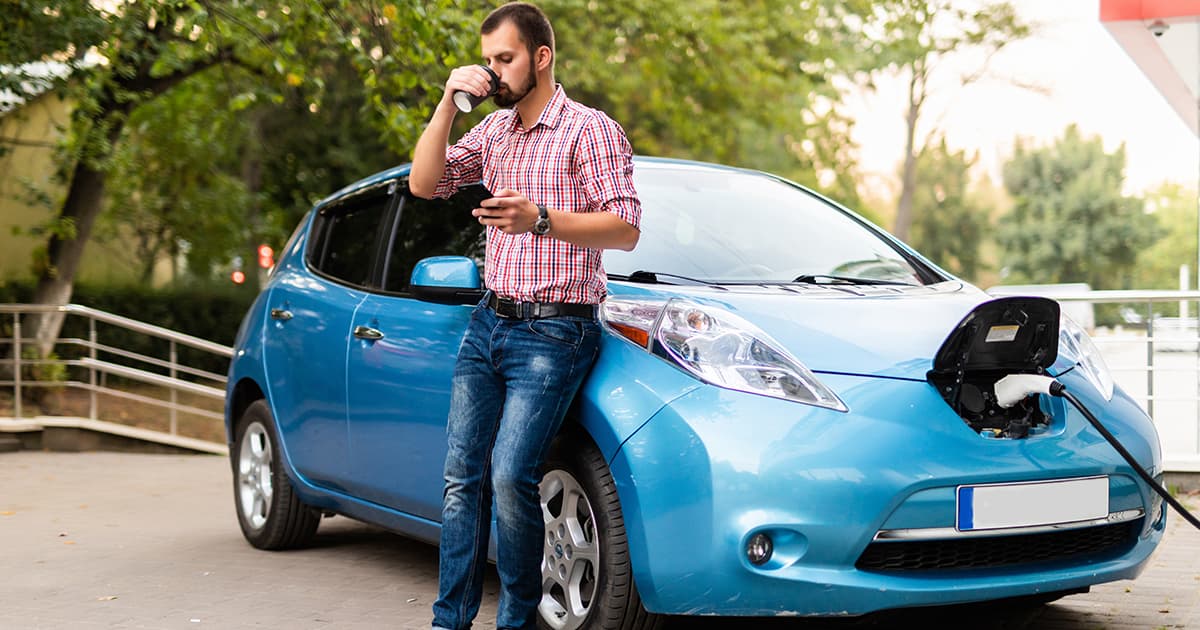What Do I Need to Know about Hybrid Cars?

A hybrid car isn’t fully electric, but it does offer gas savings and environmental benefits.
It combines a traditional gasoline-powered engine with an electric motor, allowing it to run on both electric and gasoline power. Depending on driving circumstances, power can come from either the engine, the motor or both.
Here are 5 pros and cons to consider when buying a hybrid car.
Pros
1. Fuel economy benefits: Hybrid cars are able to achieve higher fuel efficiency than traditional gas-powered vehicles due to their ability to switch between electric and gasoline power. This means that you can save money on gas over time. Hybrid cars also have a cheaper cost per mile compared to conventional cars.
2. Recycles kinetic energy: Kinetic energy is the energy a hybrid car has because of its motion. Through their braking systems, hybrids can recycle kinetic energy that otherwise would have been wasted. Every time the car is braked, kinetic energy is converted into heat and that energy goes into the atmosphere. A hybrid car converts that kinetic energy into electricity which is then stored in a battery pack. It does this through a regenerative braking system.
3. Lower environmental impact: By using less gasoline and relying on electricity for power, they release fewer pollutants than traditional gas-powered vehicles. This helps reduce air pollution and contributes to a healthier environment.
4. Lower regular maintenance costs: Hybrid cars have fewer moving parts and do not require the same level of regular maintenance as gas-powered cars. Hybrid car owners can save money on oil changes, tune-ups, and other services.
5. Cheaper than electric cars: Hybrid cars are becoming more popular because they are cheaper than an electric car (EV), but they are more expensive than a traditional gas-powered car.
Cons
1. Less power than gas-powered models: Hybrid cars generally have less power than their gas-powered counterparts because they have smaller engines. This can be an issue for some drivers who need a car that can accelerate quickly or tow heavy loads.
2. Potential battery Issues: As with EVs, there is always the potential for battery issues with hybrid cars. The batteries in hybrid cars may need to be replaced after several years of use, which can be costly. Also, if the battery is not properly maintained it may not last as long as expected. Battery replacement can also be expensive.
3. Higher upfront cost: A hybrid car tends to be more expensive than a gas-powered car due to the additional technology and components needed to make them work. The cost of batteries for hybrid cars can be quite high, making them more expensive to purchase.
4. Accident from high voltage in batteries: In the event of an accident, the high voltage present inside the batteries can dangerous and potentially lethal. There is a high chance of electrocution in such cases, which can also make the task difficult for rescuers to get other passengers and the driver out of the car.
5. Higher repair costs: The presence of a dual engine and continuous improvement in technology can make it difficult for a mechanic to repair your hybrid, and the cost of maintenance is also much higher. You have to look at the resources in your area that can help you maintain and sustain the car.



